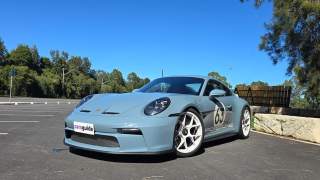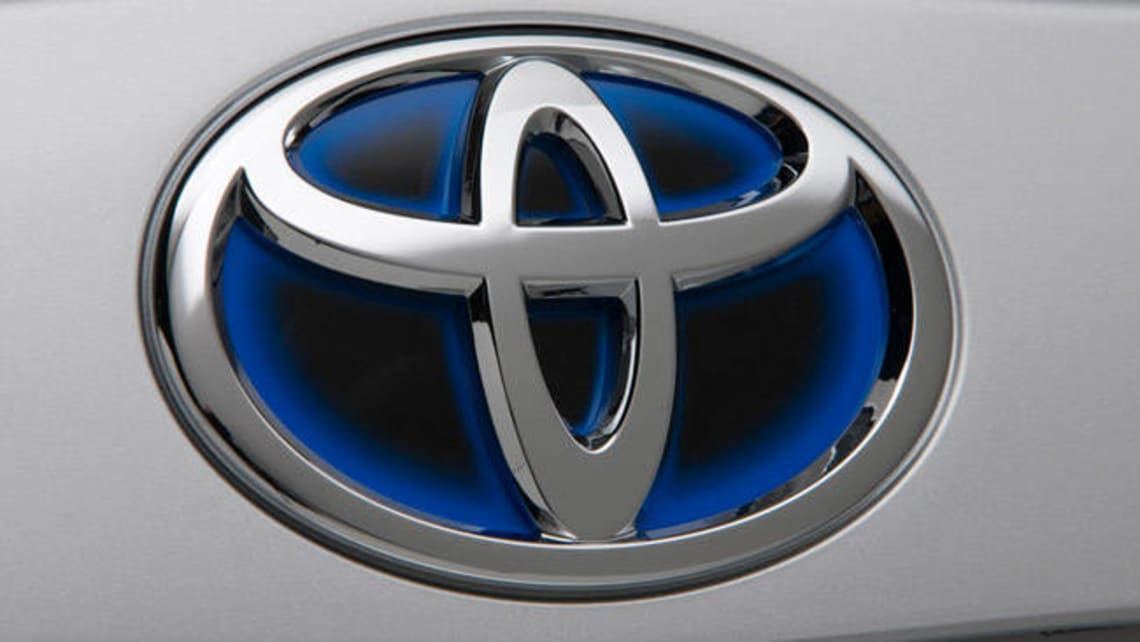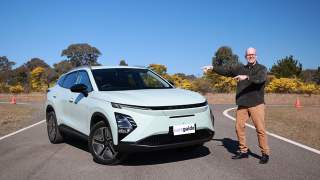
Toyota to make hydrogen push
- Toyota Prius
- Toyota Prius 2009
- Toyota Prius 2006
- Toyota Prius 2007
- Toyota Prius 2008
- Toyota Prius 2010
- Toyota Prius 2011
- Toyota Prius 2012
- Toyota Prius 2013
- Toyota Prius 2014
- Toyota Prius 2016
- Toyota Prius 2015
- Toyota Prius 2001
- Toyota Prius 2002
- Toyota Prius 2003
- Toyota Prius 2004
- Toyota Prius 2005
- Toyota News
- Toyota Hatchback Range
- Toyota Sedan Range
- Hatchback
- Sedan
- Toyota

Toyota says it will the first carmaker to sell a hydrogen-powered car in Australia, using an onboard fuel cell to generate electricity, perhaps as soon as 2016.
It claims the newcomer will be a bigger breakthrough than the first Prius, although its plans are dependent on developing a workable network of refuelling stations that can supply the hydrogen for the vehicle.
Toyota is well advanced with its fuel cell development work and I have driven an impressive Kluger in California that is refuelled from the world's first dedicated high-pressure hydrogen refuelling station. It sounds and responds like an electric car, and Toyota says its giant hydrogen tanks and prototype fuel cell 'stack' will be shrunken considerably by the time it is ready with its first production car.
"We're aiming for a production fuel cell car in the USA in 2015. It's a car, not an SUV," says Greg Gardner, of Toyota Australia. "It will be an all-new model. Something like the Prius, at least initially. "As the environmental leader in Australia, hat's definitely a target for us. Yes, definitely, we want to be first."
Toyota has shown several hydrogen concept cars including a four-door sedan that will have the space to package the new-era powerplant, which is similar to the one in the landmark Honda Clarity. The Clarity began as a concept car and is now being leased in small numbers in Japan and the USA, but is not regarded as a genuine production model.
Toyota says its car will be sold, not leased, and will be a genuine production car and not a science experiment. Even so, Gardner says it will take time to get established. "It will be produced in the tens of thousands by 2020.
It won't be like the Prius, which will hit one million sales next year," he says. But he promises a car that satisfies the needs of regular consumers, not just eco warriors, with the practicality of a Camry. "The good thing about hydrogen is that you only have to find space for the cell and tanks. It's about packaging," Gardner says.
"It can be applied to any vehicle. So in the future you could have a gasoline car, an electric hybrid and and hydrogen drive in the same vehicle. "The more that you do, and the longer you do it, the better the price will become. It's about the economies of scale." But he admits there is an elephant in the room, with no sign of a workable hydrogen fuel network any time soon in Australia.
"Refueling is the biggest challenge. But this is he future we're talking about," he says. "If we build it, they will come. When we introduce it, we'll have to work collaboratively with the liquid energy distribution companies and governments to make it work. It's a massive task."










Comments